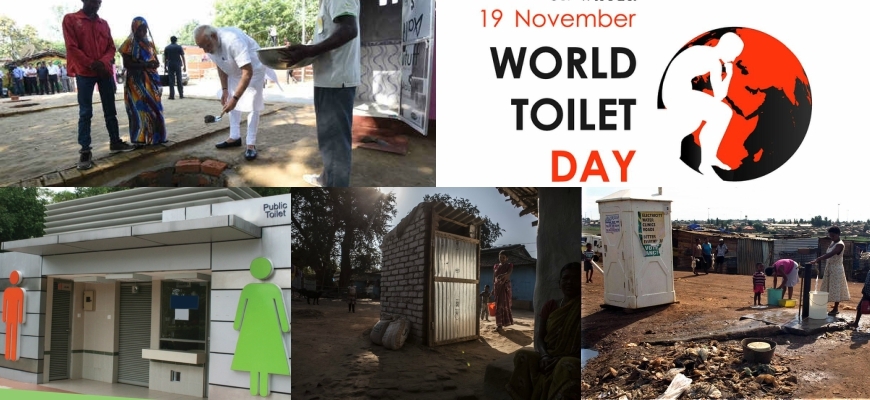#WorldToiletDay: Since the launch of Swachh Bharat Abhiyan, more than 12 mn toilets constructed in rural India
Mumbai, November 19: Attempting to aid in break the restrictions around toilets, the United General Assembly has chosen 19 November as World Toilet Day. Titled as “Sanitation for All” earlier, this was taken to encourage the access to sanitation among the poor and to finish the practice of open-air defecation which is harmful to public health.

Sanitation is also a question of basic self-respect and women safety, who should not risk being victims of rape and abuse because of lack of access to a toilet that offers privacy. World Toilet Day has previously been marked by international and civil society organizations all over the world. However, it was not formally recognized as an official UN day until 2013. It was adopted on 24 July 2013 by the UN ad declared it as a World Toilet Day.
The Theme for World Toilet Day 2017 is the Wastewater. World Toilet Day is about motivating action to tackle the global sanitation crisis. It aims to reach everyone with sanitation, and split the fraction of untreated wastewater and increase recycling and safe reuse.
According to WHO and UNICEF, About 60 percent of the global population which means 4.5 billion people have no toilets at home. Still, 862 million people globally practice open defecation. Contaminated water is used by 1.8 billion people as a source of drinking water with no protection. Without being treated or reused, 80 percent of the wastewater generated by society flows back into the ecosystem globally.
Only 39 percent of the global population which amounts to 2.9 billion people uses safely-managed sanitation service. Combined with safe water and good hygiene, improved sanitation could prevent around 842,000 deaths each year.
According to United Nations, since the launch of Government of India’s flagship scheme, the Swachh Bharat Abhiyan (Clean India Mission), more than 12 million toilets have been constructed in rural areas. India is dedicated to making sure access to water and sanitation services to all.
Led by Prime Minister Narendra Modi, the Swachh Bharat Mission or the Clean India Campaign is changing lives throughout the country. With Swachh Bharat Abhiyan, 40,39,122 Individual Toilets also 2,23,550 public and community toilets have been constructed. 1,334 cities have been open defecation free. The prominence of this revolution in India is massive as it is assessed that almost 1,17,000 children die annually due to diarrhea.
On the occasion of the World Toilet Day, Prime Minister Narendra Modi said that on World Toilet Day we reaffirm our commitment towards improving sanitation facilities across our nation. He further added that I compliment all those individuals and organizations working towards building more toilets in various parts of India. Their invaluable contribution adds solid momentum to Swachh Bharat Mission.
UNICEF conducted an independent study across 10,000 families in 12 states of the country to measure the financial influence of sanitation at a family level. The study found that the cost-benefit ratio of a family was 430 percent in fully ODF communities. This meant that a single rupee invested in sanitation allows a family to save Rs.4.30.

